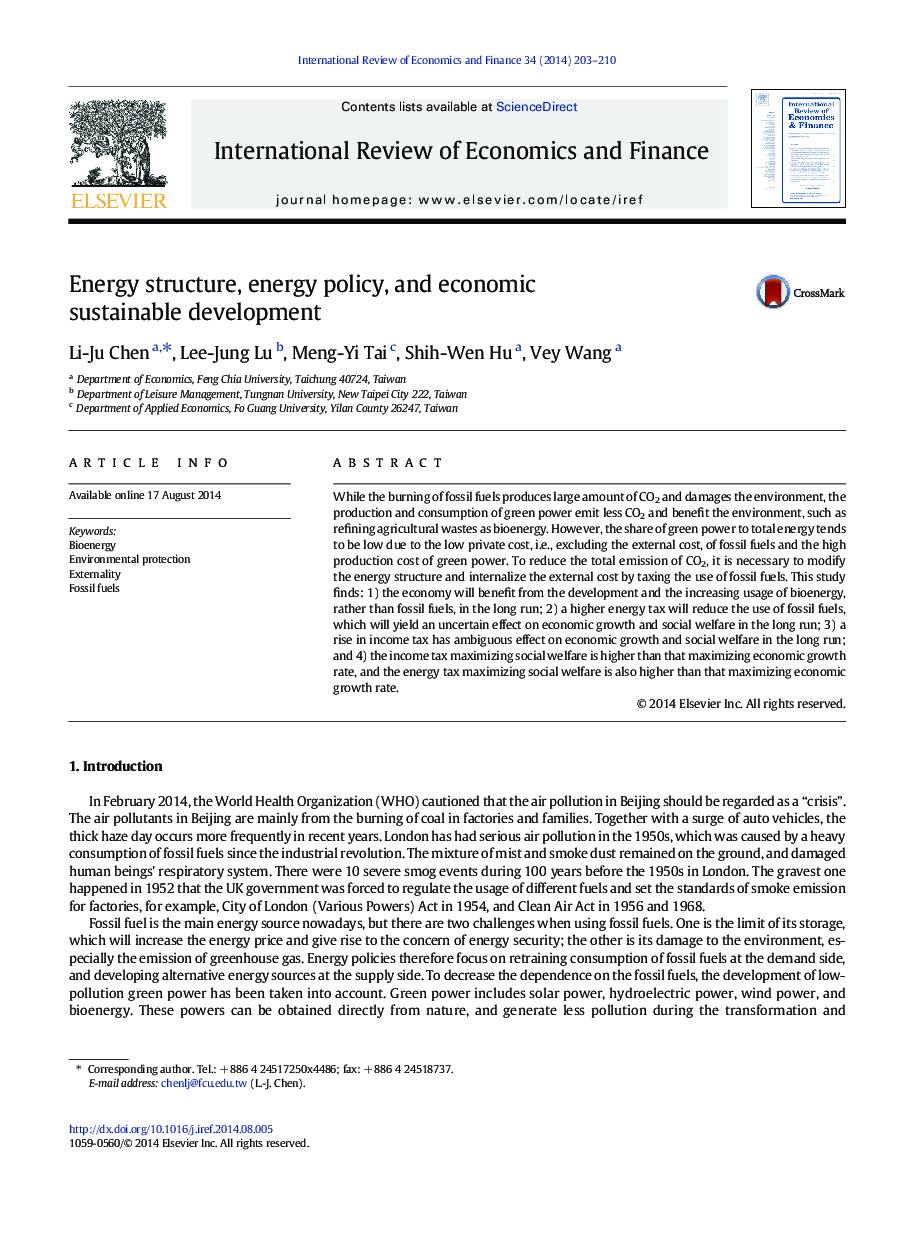| Article ID | Journal | Published Year | Pages | File Type |
|---|---|---|---|---|
| 5083594 | International Review of Economics & Finance | 2014 | 8 Pages |
Abstract
While the burning of fossil fuels produces large amount of CO2 and damages the environment, the production and consumption of green power emit less CO2 and benefit the environment, such as refining agricultural wastes as bioenergy. However, the share of green power to total energy tends to be low due to the low private cost, i.e., excluding the external cost, of fossil fuels and the high production cost of green power. To reduce the total emission of CO2, it is necessary to modify the energy structure and internalize the external cost by taxing the use of fossil fuels. This study finds: 1) the economy will benefit from the development and the increasing usage of bioenergy, rather than fossil fuels, in the long run; 2) a higher energy tax will reduce the use of fossil fuels, which will yield an uncertain effect on economic growth and social welfare in the long run; 3) a rise in income tax has ambiguous effect on economic growth and social welfare in the long run; and 4) the income tax maximizing social welfare is higher than that maximizing economic growth rate, and the energy tax maximizing social welfare is also higher than that maximizing economic growth rate.
Related Topics
Social Sciences and Humanities
Economics, Econometrics and Finance
Economics and Econometrics
Authors
Li-Ju Chen, Lee-Jung Lu, Meng-Yi Tai, Shih-Wen Hu, Vey Wang,
